What if Prussia had lost the Austro-Prussian War in 1866? This defeat would have dramatically altered the balance of power in Europe.
A Prussian loss could have kept the German states loosely united under Austrian influence, potentially delaying or preventing the rise of a unified Germany.
This alternate timeline opens up fascinating possibilities that could have reshaped Europe's political, economic, and cultural landscape for generations.
Altered German Unification
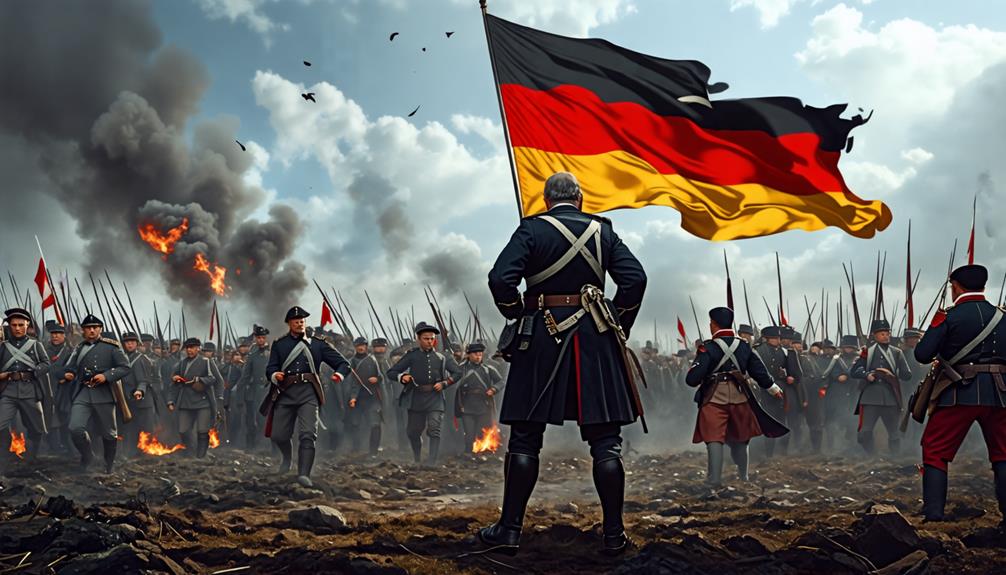
In an alternate timeline where Prussia lost the Austro-Prussian War, the path of German unification would have taken a drastically different course. Some historians theorize that Austria's victory would have allowed it to maintain a stronger influence over the German states, potentially leading to a more decentralized and looser confederation rather than a unified German Empire.
This alternate outcome could have meant significant changes to the balance of power in Europe and the course of history in the late 19th and early 20th centuries.
While this specific scenario didn't occur, it's worth noting that German unification was eventually achieved later, in 1871, under Prussian leadership following the Franco-Prussian War.
Strengthened Austro-Hungarian Empire
In an alternate timeline where Austria prevailed in the Austro-Prussian War, the Austro-Hungarian Empire would have emerged as the dominant power in Central Europe.
Prussia's influence among the German states would have diminished, while Austria solidified its leadership of the German Confederation.
One theory suggests this could have meant a very different path for German unification, with Austria at the helm instead of Prussia.
It's possible that a similar scenario of Austrian dominance could have occurred later under different circumstances, but the 1866 victory would have given the Habsburg monarchy a major boost at a critical juncture.
Shift in European Alliances
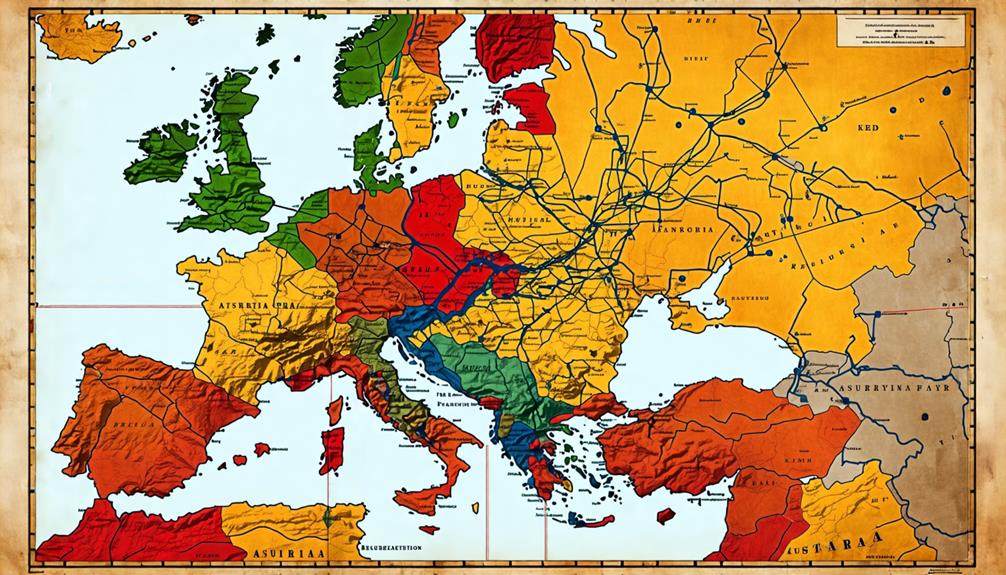
An Austrian victory in the Austro-Prussian War would have significantly changed European alliances in the late 19th century. One theory is that Austria-Hungary might've aligned with France to counter a weakened Prussia. Meanwhile, Britain, concerned about France's growing power, could have sided with Prussia and Russia.
These new alliances may have resulted in a very different World War I, with Austria-Hungary and France facing off against Prussia, Russia, and Britain.
It's worth noting that a similar scenario did occur later in history during World War II, with the Axis powers (Germany, Italy, and Japan) facing the Allied powers (Britain, France, the United States, and the Soviet Union). However, the specific alliances and circumstances in this alternate history scenario would have been quite different from those of World War II.
Economic Implications
In an alternate timeline, a Prussian defeat could have significantly altered the economic landscape of 19th-century Europe. One theory suggests that Austria would have maintained its dominance in the German Confederation, potentially leading to reduced industrial growth and competition in the region. This scenario might've also resulted in slower development of railways and infrastructure, as well as a shift in the balance of trade and economic power.
While this specific scenario didn't occur, some historians argue that a similar outcome could have been possible if another nation had defeated Prussia at a later date. Such an event would have likely impacted Europe's economic trajectory, potentially delaying modernization and integration efforts.
Ultimately, the consequences of a Prussian defeat remain a topic of historical speculation and debate.
Delayed Italian Unification
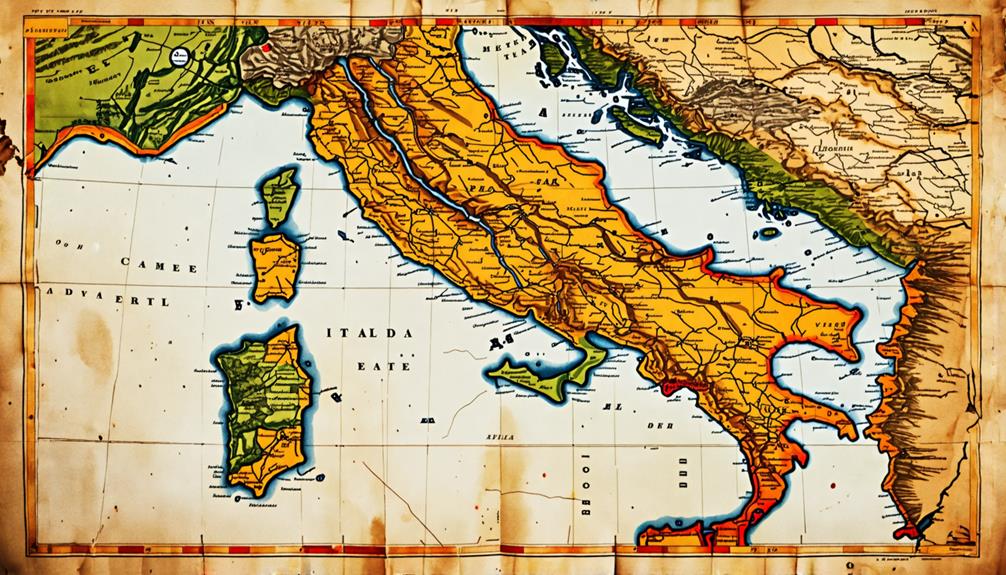
In an alternative history scenario where Prussia lost the Austro-Prussian War, the unification of Italy would likely have been significantly delayed.
One theory is that without Prussian support, the northern Italian states would have remained divided, while the southern regions and Sicily stayed separate under Bourbon rule.
The Papal States could have maintained their independence for a longer period, potentially altering the balance of power and influence of the Catholic Church in Italy and Europe.
It's possible that Italian unification may still have occurred at a later date through the efforts of another rising power or influential leader, but the timeline and ultimate outcomes would have been quite different.
Butterfly Effect on World Wars
The failure of Prussia to triumph in 1866 could have profoundly altered the trajectory of 20th century global conflicts.
One theory suggests that Austria-Hungary would have emerged as a more dominant power, potentially delaying or significantly changing the course of German unification. This shift in the balance of power might've led to different alliances and political dynamics leading up to World War I.
Consequently, the rise of Nazi Germany mightn't have occurred, or could have manifested in a different form.
It's worth noting that similar scenarios of altered unification and shifted alliances have been explored by historians and alternate history enthusiasts. While the specific outcomes remain speculative, it's clear that the ripple effects of Prussia's hypothetical defeat could have dramatically reshaped the world wars and the entire 20th century.
Divergent Cultural Developments
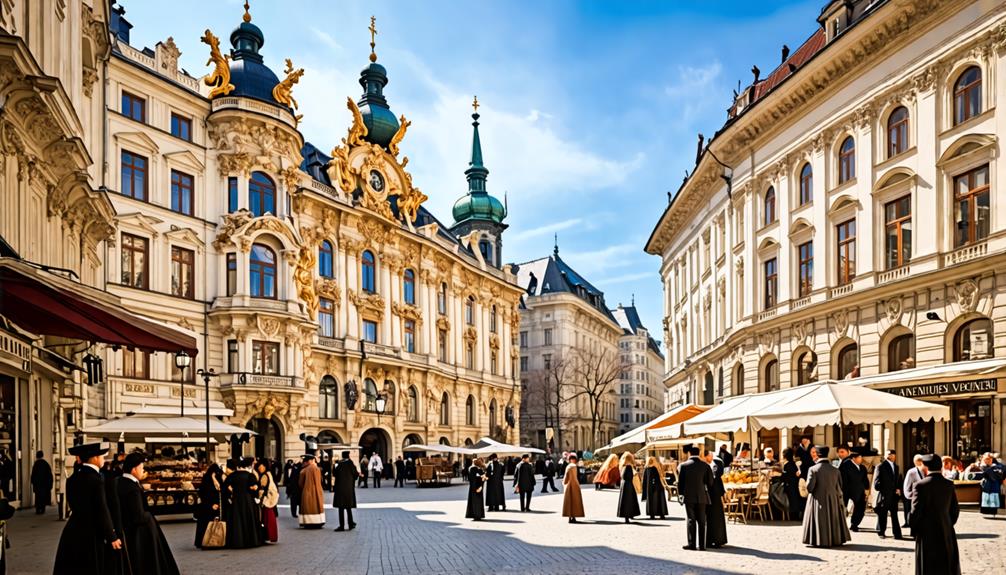
If Prussia had been defeated in 1866, it could have led to significantly different cultural developments throughout Europe.
One theory is that the Austrian cultural sphere would have remained more influential, with Vienna continuing as the preeminent hub for art, music, and intellectual pursuits.
Conversely, the cultural impact of Berlin and northern Germany might've been lessened, potentially resulting in reduced Prussian militarism shaping societal values and national identity.
It's worth noting that a similar scenario did occur later in history, with the defeat of Germany in World War I and World War II leading to shifts in cultural and political dynamics across Europe.
Conclusion
Imagine a Europe where Prussia's defeat is a pebble tossed into history's pond.
Ripples spread, changing the continent's face – alliances shift, economies diverge, and conflicts take new paths.
Like a chessboard where a single move alters the game's course, Prussia's loss could've rewritten the rules.
Germany remains a patchwork quilt rather than a unified powerhouse, forever altering the threads of culture, industry, and identity that weave together to create modern Europe.
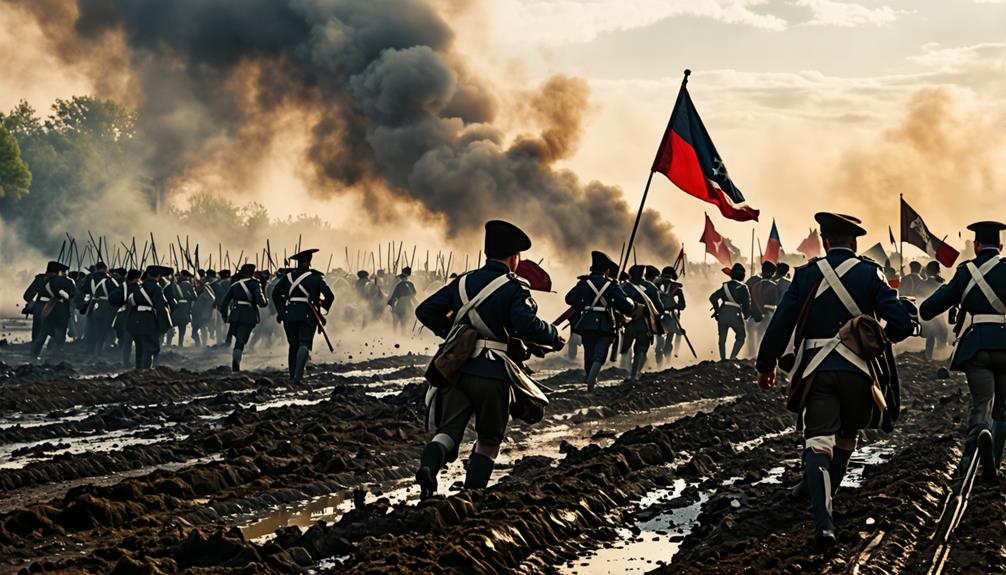
Leave a Reply